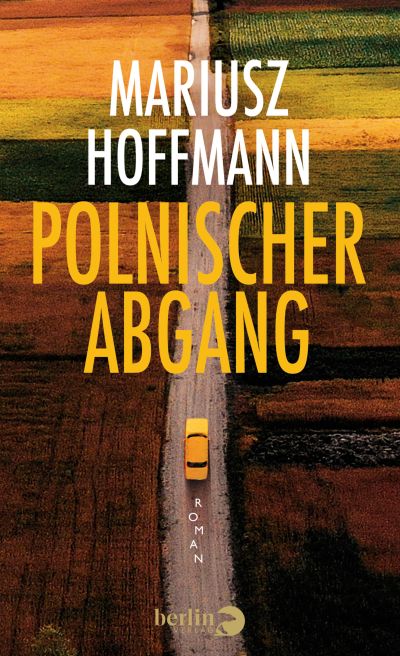Mariusz Hoffmann. From a village in Silesia to Werne and then Berlin

In Hildesheim, the would-be authors not only learned how to critically discuss their writing, but also that there are far more opportunities to work in the cultural sector than purely as a writer. Hoffmann names several examples: organising cultural events, editing, writing contributions for radio, blogging, and formats such as “Litradio” or the literary journal “Bella triste”, where he worked as a co-publisher. During periods of self-doubt, it was this perspective that prevented him from becoming too discouraged. In the event, Hoffmann applied for numerous literary grants during his time as a student in Hildesheim. Often, he was turned down, and patience and the ability to deal with his sense of frustration were required. Finally, however, his perseverance paid off, and he was awarded writing residencies in Broumov in the Czech Republic and Ahrenshoop on the Baltic coast.
During these residencies, he wrote the short story “Dorfköter” (“Village Mongrel”). The narrative is told in the first person, and follows the story of a boy who leaves his Silesian village of Zalesie with his parents and comes to Germany. Originally, Hoffmann hadn’t planned on writing autobiographically, and hadn’t wanted to use his own family history as a starting point. During the process of writing, however, it became impossible to ignore the material. The story centres around the loss of a friendship. However, the text was imbued with Hoffmann’s childhood memories, and with descriptions of the rural village where he grew up. In the prestigious open mike writing competition, Hoffmann won first prize in the “prose” category with “Dorfköter” in 2017. The award, as well as the positive reception of the story, encouraged him to expand on the material. He conducted interviews with his parents and grandmother, and tried to retrace his family history. Finally, he had more than enough material to send the Sobota family in the novel off on their journey. However, before the book, entitled “Polnischer Abgang” (“Polish Departure”) was published by the berlin Verlag, Mariusz Hoffmann first completed his studies in Hildesheim, moved to Berlin, took up employment as a care assistant and honed his manuscript after the end of the working day. Finally, he found his publisher through an agent. He recalls his parents’ reaction: “At first, they were sceptical when I told them I was writing a book. But when things got serious with the publisher, they were delighted that their son had become something so unusual like an author.”
“Polnischer Abgang” is a tragi-comic family road trip novel. In 2023, it was nominated for the Ruhr literary prize and was praised by Nico Bleutge on Deutschlandfunk radio as being “magically strange” and “highly perceptive”. However, in an article for the Deutsches Polen Institut, the Silesian specialist in German language and literature Andrzej Kaluza criticises Hoffmann’s novel, saying that it follows in the tradition of other accounts of Polish emigration that mix fact and fiction and which are ultimately not credible. As Mariusz Hoffmann explains: “This is a novel, not a non-fiction book. The first-person narrator is young and unreliable, and is not interested in ‘identities’. My claim to truth has nothing to do with the correct rendition of the history of Upper Silesia, but rather with the truthful rendition of a subjective perspective. When I developed the character of Jarek, I based him on the young people I met in Zalesie and Strzelce when I travelled there myself as a young man. They’re boys from simple backgrounds. It’s possible that Mr. Kaluza is not very familiar with them.”
Today, Hoffmann works as a freelance author and creative writing teacher. He also has a regular job teaching language courses. Additionally, he is working on a new novel, although he is reluctant to say much about it at this stage. He is willing to reveal one thing, though: in the new novel, the main character is also searching for a place to call home.
He travels to Poland two or three times a year. This summer, he will visit Warsaw for the first time, and is looking forward to speaking Polish in public again without making himself conspicuous.
Anselm Neft, August 2024



